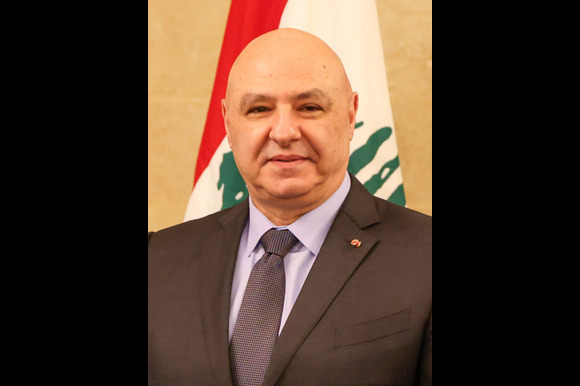Lebanese President Joseph Aoun has reiterated his country’s desire for peace with Israel but firmly ruled out any plans for normalisation, as tensions flared once again following a deadly Israeli drone strike in southern Lebanon.
The strike, which targeted a car in the Nabatieh district on Friday, killed one person and injured five others, according to Lebanon’s Ministry of Health. It is the latest in a series of attacks by Israel in southern Lebanon, despite a ceasefire agreement signed on November 27 between Israel and the armed group Hezbollah.
Under the terms of that truce, Hezbollah forces were to withdraw north of the Litani River—approximately 30 kilometres (20 miles) from the Israeli border—while Israel agreed to fully remove its troops from Lebanese territory. The area was to be secured solely by the Lebanese army and United Nations peacekeepers.
However, Israel continues to occupy five strategic sites in southern Lebanon, raising concerns in Beirut about ongoing violations of Lebanese sovereignty.
Speaking on Friday, President Aoun emphasised Lebanon’s commitment to peace but drew a sharp line between peaceful coexistence and political normalisation. His remarks came in response to recent comments by Israeli Foreign Minister Gideon Saar, who suggested the possibility of normalised ties between the two nations.
“Peace is the absence of a state of war, and this is what matters to us in Lebanon at the moment,” Aoun stated. “As for the issue of normalisation, it is not currently part of Lebanese foreign policy.” He also urged Israel to respect Lebanon’s sovereignty and complete its withdrawal from all occupied territories.
Aoun also touched on the contentious issue of Hezbollah’s weapons arsenal, a point frequently raised by the United States, which has long called for the group’s disarmament. While the Lebanese president expressed a desire for the state to “hold the monopoly over weapons in the country,” he did not provide specific plans or timelines for achieving that goal.
Hezbollah, significantly weakened after more than a year of hostilities with Israel, has remained defiant. Its deputy leader, Naim Qassem, addressed a crowd in southern Beirut on Sunday, rejecting calls for disarmament.
“We cannot be asked to soften our stance or lay down arms while [Israeli] aggression continues,” he declared.
On Wednesday, the Israeli military confirmed that some of its troops had entered southern Lebanon, claiming the incursion was aimed at dismantling Hezbollah infrastructure and preventing the group from reestablishing a presence in the area.
The violence escalated further on Thursday when an Israeli drone targeted a motorbike in the village of al-Mansouri, near Tyre. One man was killed in that attack, and two others were injured, according to Lebanon’s Ministry of Health.
The recent strikes mark a renewed period of instability in southern Lebanon, threatening to unravel the fragile ceasefire agreement and complicating diplomatic efforts aimed at achieving lasting peace in the region.






